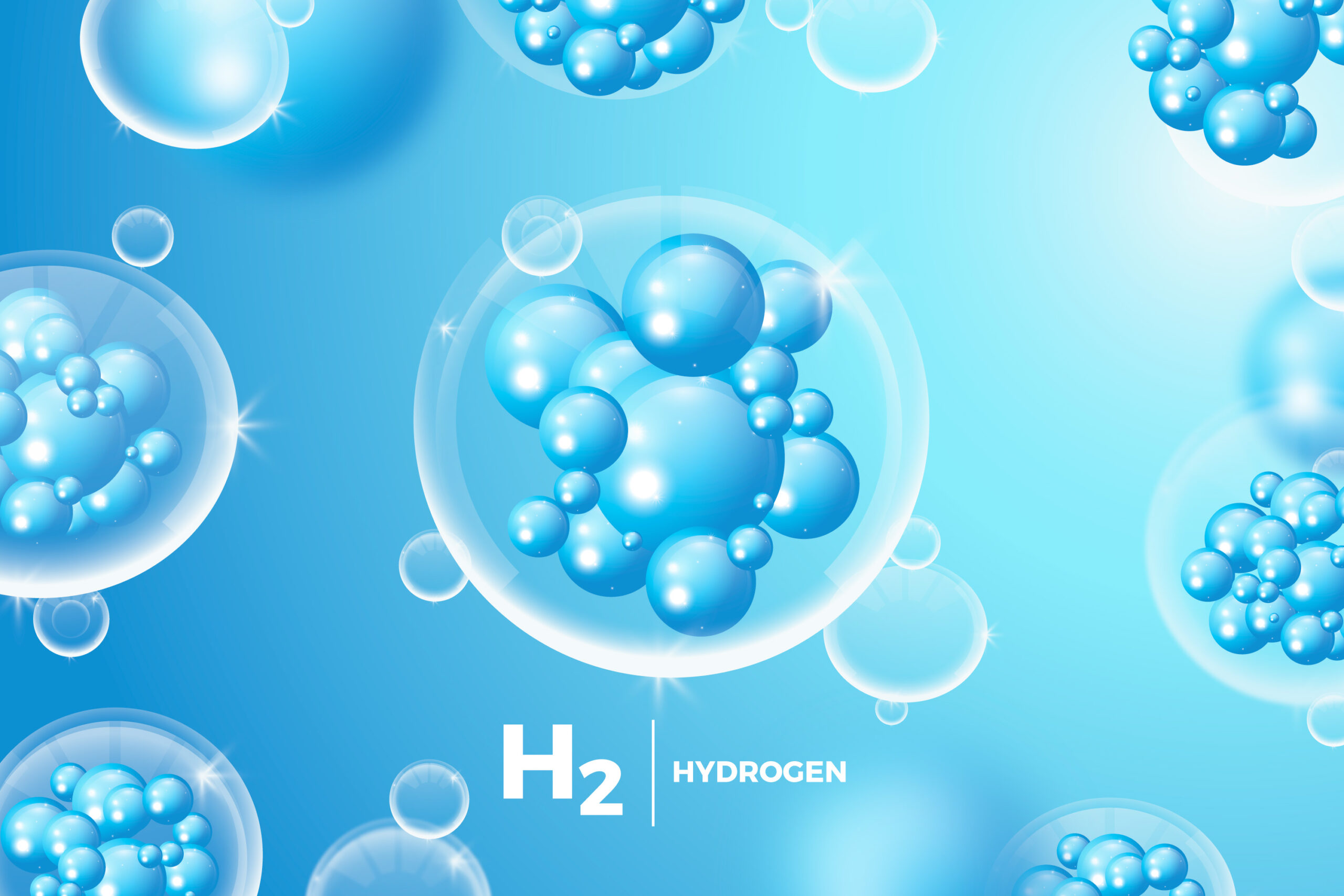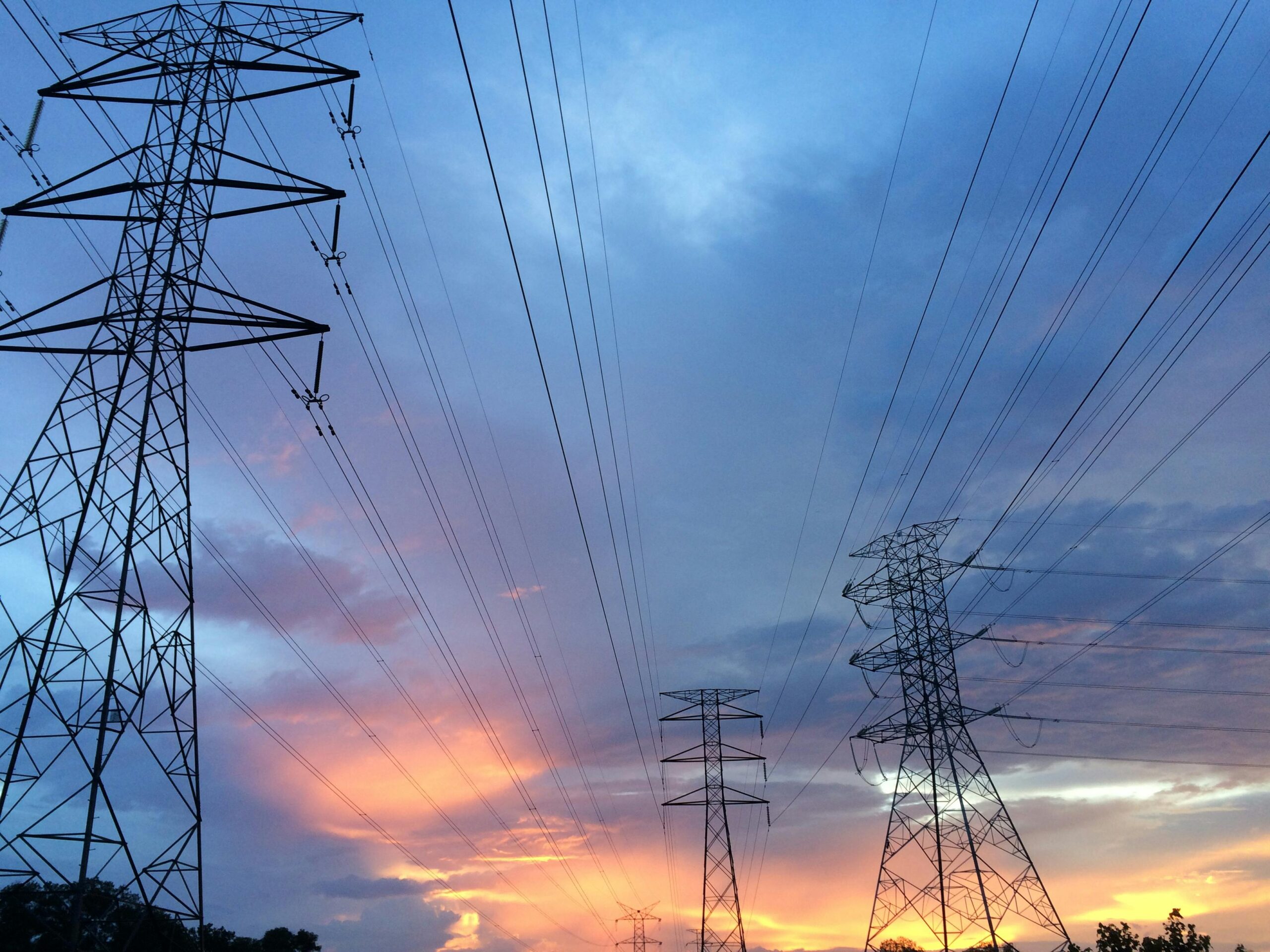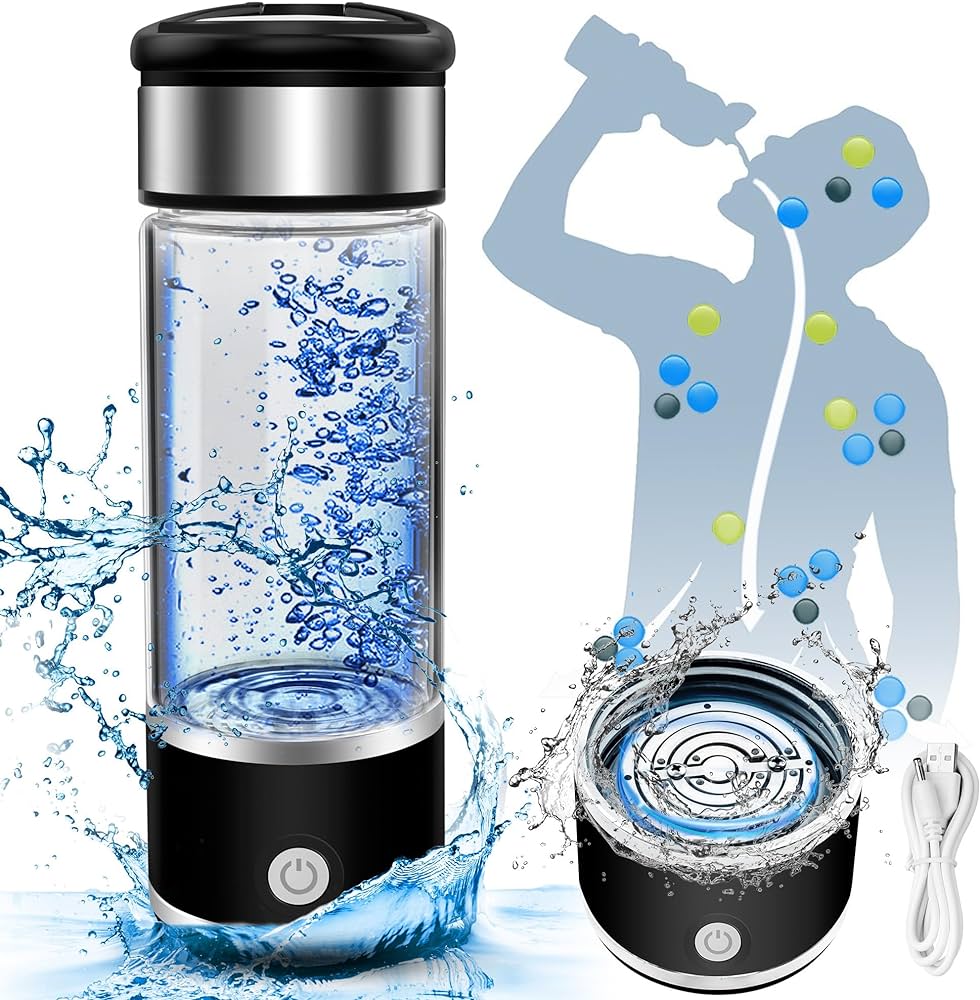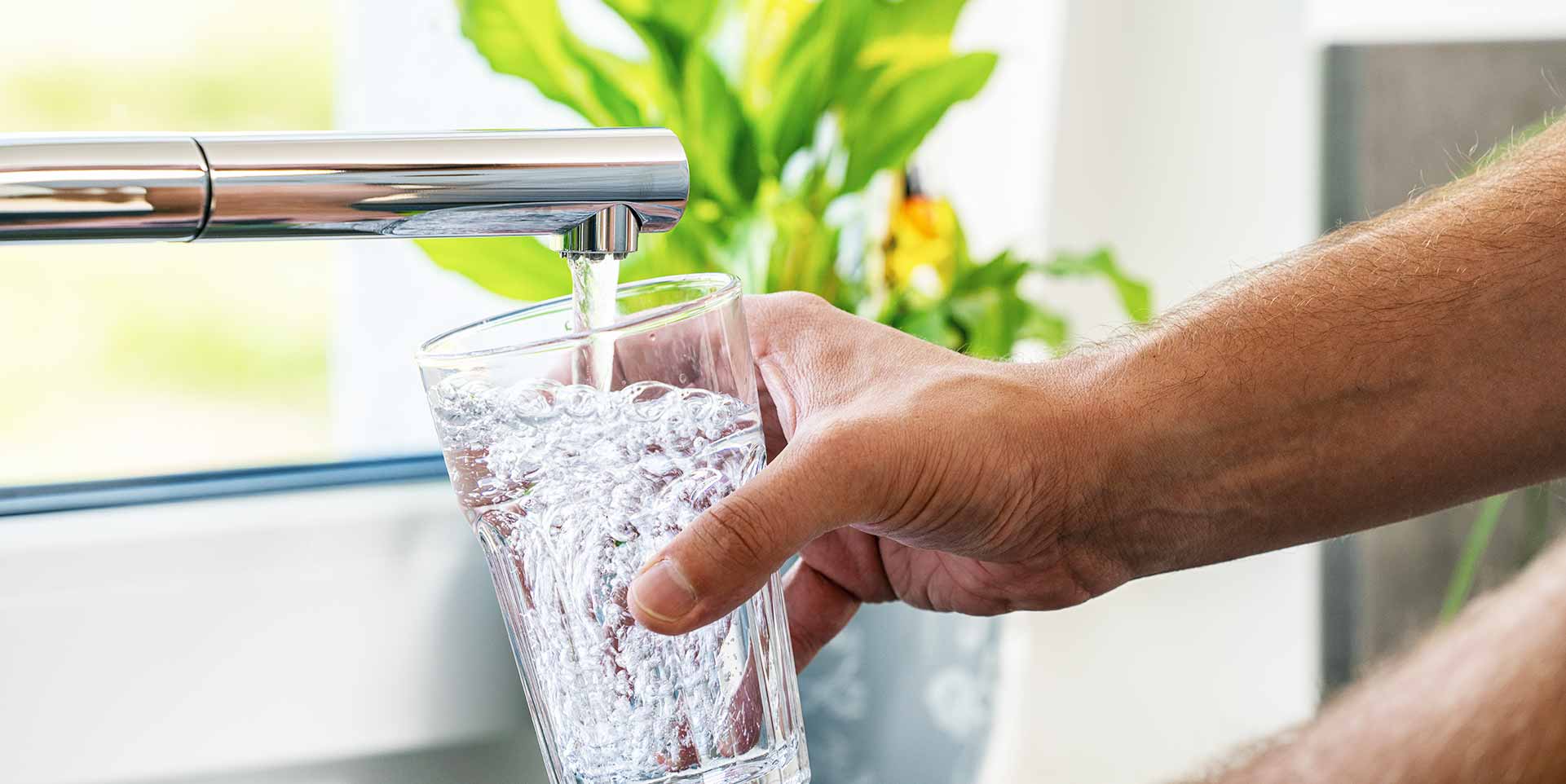In recent years, hydrogen water has progressively gained popularity and has become a trend for everyone’s healthy lifestyle. And I’m progressively transitioning to using this type of water on a daily basis to provide more support to my body. “Is Hydrogen Water Good for the Brain?” is probably the most common question we ask when we use it to replace ordinary water. Aside from the benefits of hydrogen water, it can also boost immunological function and improve sleep quality… Today, we will provide you with an in-depth review of the favorable effects of this sort of water on the brain, specifically as an antioxidant that improves memory, focus, and alertness.

What is Hydrogen Water?
What is it?
Hydrogen water is simply water into which additional hydrogen molecules have been infused. This form of enhanced water is produced through a process known as electrolysis, where electrical currents are used to separate water (H2O) into its basic components — hydrogen and oxygen gases. Once separated, the hydrogen gas is dissolved back into the water under pressure, increasing its concentration without altering its taste or appearance. Some modern devices can also produce hydrogen water through chemical reactions using magnesium sticks that react with water to release hydrogen gas.
How Does it Work in the Body?
When consumed, hydrogen water introduces molecular hydrogen into the body, which is thought to provide therapeutic benefits at the cellular level. Molecular hydrogen acts as a selective antioxidant, selectively targeting and neutralizing the most cytotoxic reactive oxygen species (free radicals). This selective action helps prevent cellular damage and reduce oxidative stress, which is implicated in aging and various disease processes, including those affecting brain health. Research suggests that due to its small size and non-polar nature, molecular hydrogen can easily penetrate cell membranes, accessing parts of the cells that other antioxidants cannot reach, potentially offering protective benefits to the brain and nervous system
Scientific Basis for Hydrogen Water and Brain Health
Antioxidant Properties of Hydrogen Water
Hydrogen water is celebrated for its strong antioxidant properties, significantly impacting brain health. It contains molecular hydrogen, which functions as a selective antioxidant. This means it targets and neutralizes particularly damaging reactive oxygen species (ROS) in the body. These ROS are unstable molecules that can severely damage cellular components, leading to oxidative stress. Oxidative stress is a major factor in the onset and progression of neurodegenerative diseases, such as Alzheimer’s and Parkinson’s.
By mitigating oxidative stress, hydrogen water plays a crucial role in protecting neurons from damage. It helps maintain cellular health and supports overall cognitive functions, which are essential for brain health.
Research on Hydrogen Water and Cognitive Functions
The influence of hydrogen water on cognitive functions has attracted significant scientific interest, with studies showing promising results. Research suggests that hydrogen water may boost brain functions by improving mood disorders, reducing inflammation, and offering protection against neurodegeneration.
For example, a significant study published in the Journal of Clinical Biochemistry and Nutrition reported that daily intake of hydrogen-rich water led to considerable improvements in neurotransmitter functions. These neurotransmitters are crucial for brain communication and overall health. Additionally, clinical trials have recorded enhancements in memory and attention in participants who regularly drank hydrogen water.
Such findings indicate that hydrogen water may offer benefits for individuals experiencing cognitive decline. This supports the potential of hydrogen water as a beneficial treatment for enhancing cognitive health and preventing the progression of age-related neurological diseases.
Potential Benefits of Hydrogen Water for the Brain
Enhancing Cognitive Performance
Hydrogen water may boost cognitive functions such as focus, memory, and mental clarity. Regular consumption can enhance neurotransmitter functions, leading to improved neuron communication, quicker response times, and enhanced memory recall. This is especially beneficial for students, professionals, and the elderly looking to maintain sharp cognitive abilities.
Reducing Inflammation
Chronic brain inflammation can lead to neurological conditions and mood disorders. Hydrogen water helps reduce inflammation by neutralizing free radicals and lowering oxidative stress, which if unchecked, can cause inflammation and tissue damage. Drinking hydrogen water regularly might help mitigate these effects, potentially easing conditions linked to chronic inflammation such as depression and anxiety.
Neuroprotective Effects
Hydrogen water provides significant neuroprotective benefits, crucial for preventing diseases like Alzheimer’s and Parkinson’s. Its antioxidants protect neurons from damage caused by oxidative stress and help maintain healthy brain tissue. Additionally, hydrogen supports the brain’s resistance to degenerative diseases by boosting the production of protective proteins, enhancing brain health over time.
Comparing Hydrogen Water with Other Brain Health Supplements
Below is a table that clearly compares hydrogen water with other popular brain health supplements—Omega-3 fatty acids, Ginkgo Biloba, and Vitamin E—highlighting their primary functions, mechanisms, and benefits related to brain health.
| Supplement | Primary Function | Mechanism of Action | Key Benefits for Brain Health |
|---|---|---|---|
| Hydrogen Water | Antioxidant | Selectively neutralizes harmful reactive oxygen species (ROS). | Reduces oxidative stress, protects neurons, supports cognitive function. |
| Omega-3 Fatty Acids | Structural and functional enhancement | Incorporates into neuronal membranes, improving fluidity and function. | Supports memory, mental performance, and protects against cognitive decline. |
| Ginkgo Biloba | Circulatory enhancer | Increases cerebral blood flow and has neuroprotective properties. | Enhances focus, memory retention, and reduces symptoms of dementia. |
| Vitamin E | Antioxidant | Protects cell membranes from oxidative damage. | Protects against oxidative stress, supports overall brain health and aging. |
This table outlines how each supplement works and their specific benefits for brain health, allowing you to see the distinctions and overlaps in their functions. Hydrogen water, with its unique targeting of ROS and minimal impact on other cellular functions, offers a distinct approach, particularly in addressing oxidative stress related to neurodegenerative conditions.
Important Considerations Before You Try
Before adding hydrogen water to your health regimen for potential brain health benefits, it’s essential to evaluate a few key factors:
Assess Your Health Needs: Consult with a healthcare provider to ensure hydrogen water is appropriate for your health conditions and overall wellness plan.
Quality of the Product: Investigate the efficacy of different hydrogen water machines and pre-packaged products. Ensure you choose a product that delivers a high concentration of molecular hydrogen and has proven quality certifications.
Cost and Accessibility: Consider if the initial investment for a machine or the ongoing cost of pre-packaged hydrogen water fits your budget and lifestyle.
Potential Side Effects: Begin with small amounts of hydrogen water and gradually increase your intake to monitor how your body reacts. Be cautious of any adverse effects and consult a healthcare provider if necessary.
Interactions with Medications: Discuss with your doctor if hydrogen water is safe to use with your current medications, especially if they might interact with antioxidants.
Realistic Expectations: Understand that while hydrogen water offers health benefits, it should be part of a comprehensive health approach including diet, exercise, and proper rest.
By carefully considering these factors, you can make an informed decision on whether hydrogen water is a suitable addition to your daily routine.
Conclusion
In conclusion, hydrogen water presents intriguing potential benefits for brain health, particularly due to its antioxidant properties that may reduce oxidative stress and support cognitive functions. Whether you are considering it for enhancing mental clarity, reducing inflammation, or as a preventive measure against neurodegenerative diseases, it’s essential to weigh these benefits against your personal health needs and lifestyle considerations.
Before integrating hydrogen water into your routine, consult with a healthcare provider to ensure it complements your existing health regimen. Also, consider the practical aspects such as cost, ease of integration into your daily life, and your specific health goals. By making an informed decision based on comprehensive research and personal health assessment, you can effectively utilize hydrogen water as a supplementary tool to support your brain health and overall well-being.
FAQs
1. Can drinking hydrogen water improve cognitive function?
- Answer: Some preliminary studies suggest that hydrogen water may enhance cognitive functions such as memory, focus, and alertness. This is thought to be due to hydrogen’s ability to reduce oxidative stress and inflammation, which can affect cognitive health.
2. How often should I drink hydrogen water to see benefits for my brain?
- Answer: While there’s no universally recommended dosage, consuming hydrogen water daily may help maintain its potential brain health benefits. However, as research is still evolving, it’s important to consult with a healthcare provider for personalized advice.
3. Are there any scientific studies that support the benefits of hydrogen water for the brain?
- Answer: Yes, there are several studies that have explored the impact of hydrogen water on brain health, particularly focusing on its antioxidant effects. Research has shown promising results in the context of neuroprotection and reduction of oxidative stress, but more extensive clinical trials are needed to confirm these findings.
4. Who should consider drinking hydrogen water for brain health?
- Answer: Individuals interested in preventive health measures to support cognitive function as they age may find hydrogen water beneficial. Additionally, people who are at risk of neurological diseases due to high levels of oxidative stress, such as those with a family history of Alzheimer’s or Parkinson’s disease, might also consider incorporating hydrogen water into their daily routine. Always consult a healthcare professional before starting any new dietary supplement.







